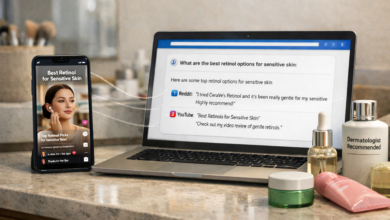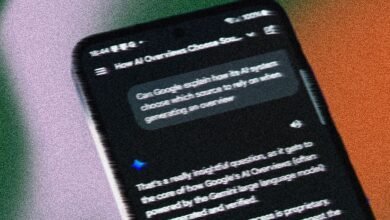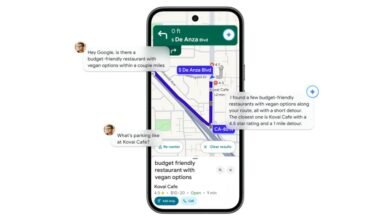The Last Safe Space: How Internet Privacy Sustains Trans Lives

▼ Summary
– The author describes using anonymous Reddit accounts to explore their trans identity online while maintaining a public cisgender identity offline, a common practice among trans people.
– Internet anonymity provides crucial space for trans individuals, especially youth and those in unsafe situations, to explore their identity and find community when offline expression is impossible.
– Proposed legislation like KOSA and age verification laws threaten online anonymity by potentially requiring government IDs, which could out closeted trans users through security breaches.
– These laws could classify trans content as “harmful” and lead platforms to censor it, cutting off access to vital resources like DIY hormone networks and support communities.
– For many trans people who cannot safely be out offline, losing internet anonymity would eliminate their only space for authentic self-expression and community connection.
For many transgender individuals, the internet serves as a vital sanctuary where they can explore their identities and connect with supportive communities away from the risks of the offline world. This digital space offers a unique form of refuge, allowing people to express their true selves when doing so in their daily lives could lead to rejection, discrimination, or even physical danger. The ability to be trans exclusively online is not just a modern convenience but a crucial lifeline for countless people navigating their gender identity.
During a particular period, I found myself living as a trans person only on Reddit. I created an anonymous profile and spent anxious afternoons quietly browsing trans-focused forums, rarely commenting and never sharing personal details. My public life was tied to my career and legal name, and the fear of being discovered was constant. Unknowingly, I was participating in a common experience within the trans community. New members frequently ask if it’s acceptable to identify as trans online before doing so in person, and the response is consistently supportive, affirming that this is a valid and traditional step for many.
Nearly every aspect of my gender exploration was aided by the internet, from finding resources to purchasing items that helped me present more authentically. However, the privacy we rely on is becoming more fragile. Social media platforms can infer sensitive details from minimal data, and new legislation threatens to dismantle online anonymity entirely. Several countries now demand government ID or facial scans for age verification, while proposed laws like the Kids Online Safety Act (KOSA) in the United States could penalize platforms for hosting queer and trans content, making community building far more difficult.
For some, online anonymity is a temporary phase before living openly in their correct gender. But for others, including young people in unsafe homes, those fearing job loss, or individuals in threatening environments, the internet is their sole outlet for genuine self-expression. Removing this privacy could be devastating.
Lowell, who grew up in a small town with little personal space, first realized he might be a trans man through Tumblr. With a smartphone as his gateway, he sought out wi-fi hotspots to secretly access trans forums. His entire world outside his family existed on that five-inch screen. Stories like his are often twisted into cautionary tales about the dangers of the internet, with some commentators and authors framing online exploration as a corrupting influence. They advocate for cutting off internet access to stop young people from questioning their gender.
Yet according to author Nico Lang, this dynamic isn’t unique to trans youth. For Generation Z, forming friendships and finding community online is completely normal. Many young people build meaningful relationships through shared interests in games or social platforms, sometimes with peers living hundreds of miles away. When adults adapt to these social patterns, it can have positive outcomes. LGBTQ+ centers, for instance, are increasingly using platforms like Discord to host support groups, making them accessible to rural youth or those with unsupportive families.
Despite this, the narrative of the internet seducing teens into a “deviant lifestyle” persists and is fueling legislative efforts. Laws like the UK Online Safety Act require age verification through government ID to access certain sites. In the U.S., KOSA could hold platforms responsible for a range of harms to minors, which LGBTQ+ advocates warn will be used to target queer and trans content. The backing of such bills by groups like the Heritage Foundation, which has explicitly linked social media use to trans identification, reinforces these concerns.
If KOSA is implemented, platforms may preemptively ban or censor trans users to avoid liability, similar to what happened after FOSTA-SESTA led to the widespread removal of sexual content. The worst-case scenario could see the U.S. adopting mandatory ID checks for internet access, which would disproportionately impact teenagers.
This intersects dangerously with other anti-trans measures. Taylor, a trans student in the UK, notes that age verification has already restricted his ability to use direct messaging on some platforms. This has severely impacted access to DIY hormone networks, which provide crucial information in the absence of formal healthcare options, including the UK’s indefinite ban on puberty blockers for trans youth. Without social media, trans kids have little hope of finding reliable resources. DIY groups are now encouraging a switch to encrypted apps like Signal.
Seeking an escape from a restrictive family or community is a common teenage experience. Most teenagers, trans or not, eventually build lives where they can be themselves both online and off. However, not everyone using the internet to express their trans identity is a teenager, and not all will ever be able to come out publicly. The risks are simply too high.
Isaiah has experienced severe consequences for being open about his identity, losing jobs, volunteer positions, educational opportunities, and nearly all his family connections. After facing repeated violence and professional fallout, he made the difficult decision to live as a woman at work and as a man online. He maintains this separation through careful data hygiene, using different names and avoiding sharing identifiable details.
Should the U.S. pass KOSA-style laws, Isaiah could lose access to the very spaces where he can be himself. He might be classified as “adult content” merely for existing online. If age verification requiring a government ID becomes mandatory, he would have to submit documentation that outs him immediately, destroying the careful boundary he has built.
Age verification systems could create a centralized database of closeted trans users, making them vulnerable to security breaches. We’ve already seen this happen with apps like Tea, which verified users through IDs and facial scans only to have that data hacked and leaked, exposing women to their abusers. As Evan Greer of Fight for the Future points out, this is the exact risk we would be imposing on the entire internet.
The stakes for being outed are higher than ever, with trans people facing increasing hostility and legislative attacks in both the U.S. and UK. In such a climate, queer people need more privacy, not less. Isaiah is clear that he would never submit his ID or undergo a facial scan to access online spaces. If forced to, he would have to abandon his only safe outlet and live entirely as his “woman self,” with no refuge to be his true self.
The choice to live safely as a trans person online would vanish. People in Isaiah’s position would be forced back into the closet or onto an internet that is as perilous as the physical world.
Today’s internet is already far from private. Direct messages can be used in legal cases, social media can reveal your identity to employers, and your phone tracks your every move. Under the model of surveillance capitalism, very few people, trans or cis, queer or straight, can claim to have real secrets.
Yet these threats are poorly understood outside the communities they most affect, and internet censorship bills like KOSA continue to gain bipartisan support. Censoring queer information online isn’t widely seen as an attack on civil liberties in the same way removing books from a library is, and many politicians are reluctant to oppose anything framed as protecting children.
Greer notes that even some progressive Democrats who voice support for trans rights have endorsed age verification laws, believing the false premise that this is the only way to safeguard young people online.
In reality, the most significant dangers children face often come from inside their own homes. For trans youth, this can include abuse from non-affirming parents. The internet can provide a critical lifeline, offering support and demonstrating that the outside world does not unanimously side with their abusers.
As Isaiah starkly puts it, many trans people cannot live authentically offline, and severing their connection to the internet could be a death sentence. He is confident that for some, this is the intended outcome.
(Source: The Verge)





